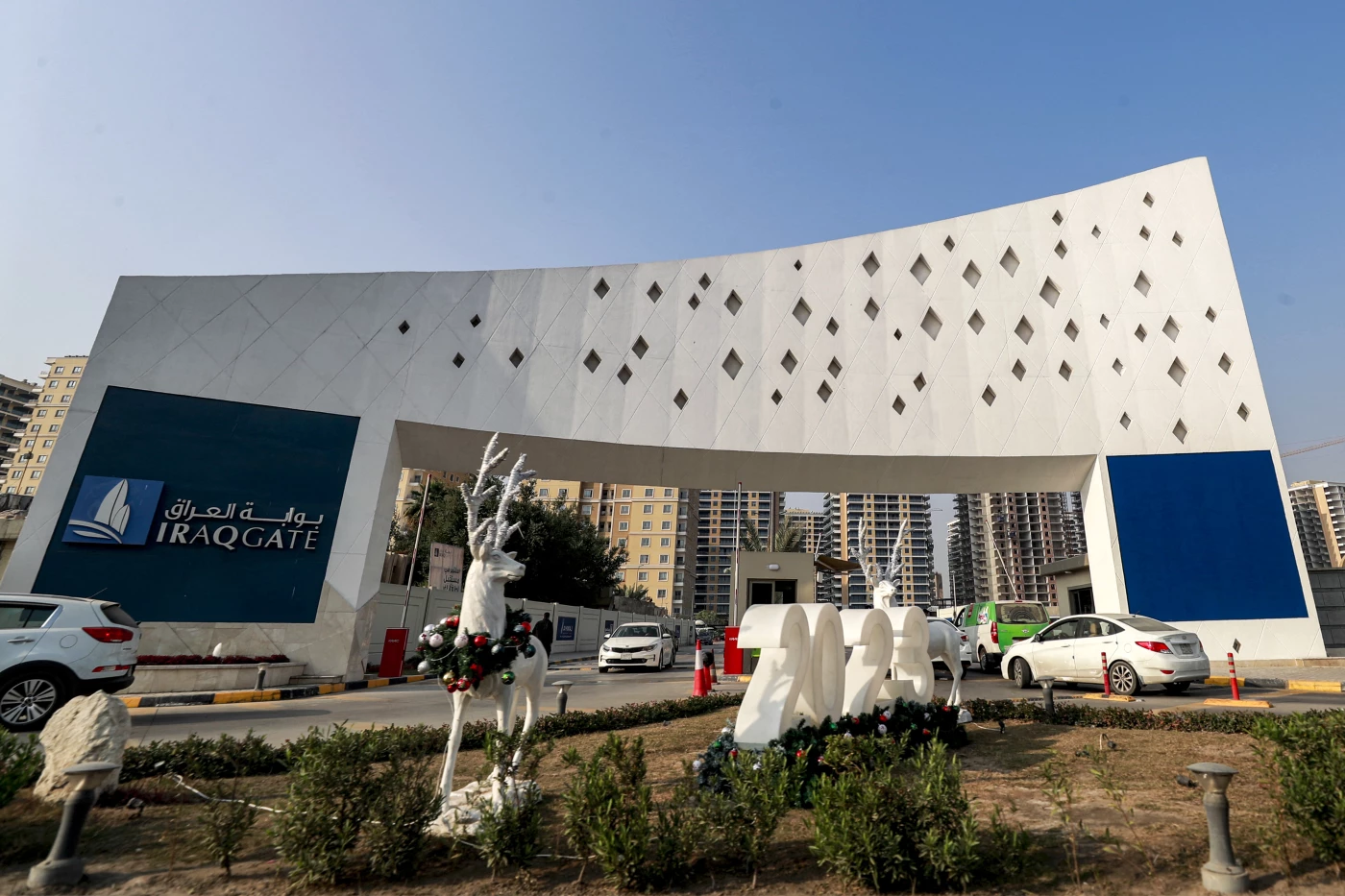Homes in upmarket residential areas of the Iraqi capital Baghdad are now commanding an eye watering 22 million Iraqi dinars per square meter (around US$15,000).
Commercial zones fetch double this figure, a dramatic surge which places Baghdad's property market in the top tier of global real estate prices. This eclipses even prices seen in European cities, cementing Baghdad's status as home to some of the world's most expensive properties.
Iraqi investment law, coupled with the disparity between supply and demand, has shifted power squarely into the hands of investors. In response, Parliament is endeavoring to amend the law as a measure to cool an overheated housing sector in Baghdad.
Prices have not only surged in designated formal areas, known as "allocation bonds," but have also seen an uptick in lands categorized as agricultural rather than residential.
Construction is often pursued in contravention of regulations, as residents aim to convert these areas into fully developed residential neighborhoods. Their hopes hinge on a shift in land use designation from agricultural to residential, a change they hope the government will facilitate.
Wander the streets of the capital or scroll through social media feeds, and you’ll be met with advertisements showcasing modern residential complexes at staggering prices.
An average monthly income for an Iraqi citizen is US$544 (800,000 Iraqi dinars), according to the website "Numbeo", which assesses global living standards.
What's perplexing about the escalating real estate costs is that Baghdad grapples with severe traffic congestion, flooding following rainfall, and an abundance of electric generators, highlighting the mismatch between infrastructure and the hefty prices.
The surge in prices has also encompassed unauthorized lands
Maher Mohsen, a real estate broker operating in the Karkh district, tells The New Region of the fluctuating price per square meter in different areas of the city. In the upscale Mansour district, for instance, prices can soar beyond US$5000, about 7 million Iraqi dinars.
"Regulation is non-existent, and there's a lack of accountability in real estate pricing," Mohsen remarks, emphasizing that "every investor sets prices at their discretion without oversight. This has led to situations where areas like Mansour and Yarmouk are now more expensive than some European cities.
"Residents of the capital are now gravitating towards agricultural lands and the outskirts of Baghdad for more affordable housing options, steering clear of the city center," Mohsen notes.
"The surge in real estate prices has extended to the Rusafa side," explains Karim Kulan, proprietor of a real estate firm in the eastern districts of the capital. "The price per square meter in agricultural lands has soared to one million Iraqi dinars, often without official documentation."
Kulan elaborates, "Certain areas on the Rusafa side command prices akin to those in Karkh, such as Al-Bunuk, Zayouna, Al-A'zamiyah, Palestine Street, and Al-Karrada."
He further details, "In the commercial zone of Zayouna, the price per square meter hovers around $10,000, while for residential spaces, it's approximately $3500, contingent on its locale." Kulan highlights, "On Palestine Street, adjacent to Sadr City, prices range from $2500 to $3000 per square meter for residential properties, while commercial spaces vary from $8000 to $10,000 per square meter."
According to the Ministry of Construction and Housing, the housing unit deficit stood at 53% in 2021 but dropped to 42% following the creation of over 450 new residential complexes. Under the administration of Mohammed Shia' Al-Sudani, the government has introduced a new decree aimed at providing property ownership rights to residents of informal settlements. These settlements grapple with insufficient infrastructure, particularly in terms of healthcare, education, and security services.
The investment law exacerbates the crisis
"The primary factor behind the surge in real estate prices in Baghdad stems from the investment law itself, which has afforded investors significant leeway without establishing a set price for properties," asserts Mohammed Al-Ziadi, a member of the Investment Committee in the Iraqi Parliament.
Al-Ziadi tells The New Region, "The investment law has widened the disparity between supply and demand, deviating from the law's original intent and empowering investors to dictate market dynamics and prices, effectively sidelining government oversight."
The MP indicated Parliament's intention to revise the investment law and introduce new regulations aimed at regulating residential property prices not only in Baghdad but also across other Iraqi provinces.
Al-Ziadi also shed light on the issue of corruption, highlighting how it contributes to the surge in real estate prices. He pointed out that corruption often involves the construction of residential units without obtaining the necessary legal approvals.
In the Corruption Perceptions Index released by Transparency International in 2021, Iraq was ranked 157th globally out of 180 countries, solidifying its position among the most corrupt nations worldwide. This classification underscores Iraq's ongoing struggle with corruption, although specific figures detailing the extent of corruption within the country were not provided by the organization.
Iraq needs 5 Million housing units
In a discussion with The New Region, economist Manar Al-Obaidi underscores that the surge in demand for residential units in the capital is a primary factor behind the escalating real estate prices. Al-Obaidi highlights that this has created a scenario where demand outstrips supply, a situation distinct from that seen in other provinces and countries.
Al-Obaidi expresses astonishment at the staggering prices of certain properties in the capital Baghdad, which have soared to over $15,000 (roughly 22 million Iraqi dinars) per square meter. "The real estate prices in Baghdad are unparalleled globally, positioning properties in the capital as the most expensive in the world."
Al-Obaidi's observation does not extend to commercial areas, where prices per square meter are four times higher than those in residential areas.
"The demand for real estate in Baghdad is steadily increasing, and there are no significant projects underway to address this demand," he notes, highlighting that "Iraq requires 5 million housing units, with an additional need for 2-3 million units annually to keep up with rising demand in the market.
Al-Obaidi proposes constructing “residential complexes on the outskirts of Baghdad, with robust infrastructure and connections to the city center," he emphasizes. "Relying solely on central Baghdad won't address the price crisis."
Soaring real estate prices, described as "unimaginable" by local experts, have exacerbated the prevalence of informal settlements both within urban centers and on the outskirts of cities.
The phenomenon has ballooned to over 4,000 informal settlements scattered throughout Iraq, accommodating more than 3 million residents. This demographic segment now represents 12% of the country's population, as reported by the Ministry of Planning.
The Ministry of Planning traces the origins of Iraq's housing crisis and escalating property prices back to the 1980s. Decades of security challenges, economic turmoil, and the ravages of war have collectively widened this gap, culminating in a current need for an estimated 3.5 million units to address the nation's housing shortage.



 Facebook
Facebook
 LinkedIn
LinkedIn
 Telegram
Telegram
 X
X


